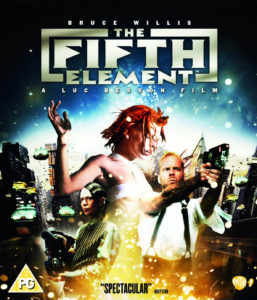
For decades, physicists have suggested a “Eureka” moment is just around the corner. A moment when scientists will produce a Theory of Everything – a simple, unifying equation that explains all the mysteries of our universe.
It is with that same sense of “Eureka” awe that I believe I have stumbled upon an equally stupendous theory – an “environmental” Theory of Everything, if you will – a simple, unifying theory that makes sense of all the dynamic mysteries of our planet, from flora and fauna biology, ecosystems, native and invasive species, to feral cats – and even the role humans play in this drama.
This environmental theory of everything could possibly be defined as a multi-disciplinary understanding of our world such that that all the practices and sciences of animal welfare and conservation biology unify in a way that compassionately protects all species, on an individual level, within a holistic application of conservation practice and policy.
Is an environmental Theory of Everything possible? If physicists can confidently assure us that they are on the verge of understanding everything in the universe, what hinders us from embracing an Earth-bound Theory of Everything?

Physicist John Barrow of the University of Cambridge says the discovery of the Theory for Everything “is quite conceivable” and that it would “explain everything from the works of Shakespeare to the human brain and the forests and valleys of our natural world.”
Burrow believes this discovery “is quite conceivable” because “the laws of nature are rather few, they’re simple and symmetrical and there are only four fundamental forces.”

The four fundamental forces are gravitation, electromagnetism, and the strong and weak nuclear forces. Some scientists speculate a fifth force might exist, but if so, it is not widely accepted nor proven.
I won’t go so far as to suggest Compassion is the mysterious Fifth Force; but I wonder…
Similar to the four known forces of the universe, Compassionate Conservationists have identified four fundamental principles that should govern our environment: First, do no harm; individuals matter; value all wildlife (this I would amend to “value all life”); and peaceful coexistence.

Let me give you an example of how Compassionate Conservation might be implemented. In the “Born to Be Wild” chapter of The Animals’ Agenda, Marc Bekoff and co-author, Jessica Pierce, draw a distinction between the “management” and the “compassionate conservation” of wildlife. Management is defined as the control of animals to meet human needs, while compassionate conservation is defined as balancing the needs of some animals against the needs of other animals or ecosystems – despite their status as native or invasive.
Bekoff and Pierce suggest the only time the practice of a conservation-driven reintroduction of a native species is ethical and appropriate is when it takes proper precaution to protect all life. (A more “compassionate” alternative to reintroduction, called “rewilding” is explained in an earlier blog.)
Especially in cases of reintroduction, Bekoff explains, contrary to conventional wisdom, that this is precisely “where compassionate conservation comes in. First do no harm, and the lives of every individual count. So, I’m potentially supportive [of reintroduction] if individuals aren’t harmed or killed for the sake of other individuals of their own or other species. Killing is off the table.”

This reminds me of my early days in the animal shelter “no-kill” movement. I challenged my staff to take killing off the table – with remarkable results. When you take killing off the table, it is amazing how creative you can get in your efforts to save lives.
Imagine a world where eradication, killing, hunting, culling, game-keeping and predator conservation strategies are taken off the table and we have to come up with holistic, humane and compassionate strategies that values bio-diversity as it exists today and not as we think it’s supposed to be…
